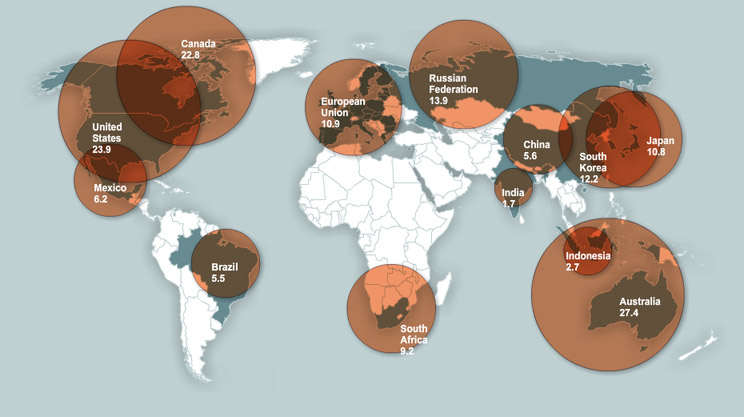Free Calendar Formats
Saturday, December 14, 2013
Thursday, May 10, 2012
Friday, December 31, 2010
Global Warming

Skeptical Science has been really pulling out all the stops as 2010 comes to an end, first releasing a great PDF Guide to Global Warming Skepticism and now adding the above image summarizing all the different indicators that the world is indeed warming.
Not included in the graphic, Skeptical Science points out, are several other indicators: Lake and rive ice cover freezing later and breaking up earlier, permafrost warming at greater depths, lakes warming, growing seasons lengthening.
The original post has links to research for all those not-included indicators as well as other file formats of the Creative Commons-licensed graphic, including vector-based ones should you need to do some serous scaling of it: Skeptical Science
Saturday, December 25, 2010
Friday, December 17, 2010
Sunday, December 5, 2010
Friday, December 3, 2010
Power distribution firms may get to encash green energy initiatives
 Setting in motion the trade of renewable energy, the government has launched a certification process for the clean energy sector. This will help power distribution companies like Tata Power, Reliance Infrastructure and the Maharashtra government’s Mahavitaran to meet their renewable portfolio obligation (RPO) through purchase of certificates.
Setting in motion the trade of renewable energy, the government has launched a certification process for the clean energy sector. This will help power distribution companies like Tata Power, Reliance Infrastructure and the Maharashtra government’s Mahavitaran to meet their renewable portfolio obligation (RPO) through purchase of certificates. The National Load Despatch Centre will issue the certificates after checking the availablity of renewable power. The certificates will enable the producer and distributor to engage in trading within a specified band. The Electricity Act of 2003 mandates state distribution utilities to purchase electricity from renewable energy sources as a certain minimum percentage of the total consumption of power in the state.
The authority to make the 5 per cent clause mandatory lies with the state regulators because power is a state subject. So far, Maharashta Electricity Regulatory Commission (MERC) is the only regulator to have notified 6 per cent mandatory purchase of electricity from renewable sources.
The value of one REC has been set at 1 megawatt hour of electricity injected into the grid from sources of renewable energy. Every such certificate will be exchanged at power exchanges within a price band between '1,500 and '3,900, as determined by CERC. “The mechanism moves the Indian renewable sector to a more stable and mature standard by creating greater market visibility, de-risking revenue from energy sales, making projects more bankable, and creating a strong investment environment,” said Tulsi Tanti, chairman and managing director of Suzlon Energy, the world’s third-largest wind turbine maker.
With the launch of certification scheme, the government plans to promote clean power by allowing utilities from green energy-deficient states to buy renewable energy certificates to offset their lag. “Renewable energy resources are highly dispersed and are concentrated mostly in states that have already achieved high levels of RPO. These states are generally reluctant to buy energy from such sources beyond the obligation mandated by the regulator. This has been stymying the growth of the sector. REC mechanism addresses this concern,” said CERC Chairman Pramod Deo.
With the formal launch of the REC scheme today, the renewable energy generators will be able to apply for accreditation certificates, citing their generation plans. This will allow generators of green power in the country to buy green energy certificates and finally sell them to distribution companies.
The uneven distribution of renewable energy potential in India discourages states with less renewable energy generation sources from committing higher RPOs. In Delhi, for example, the state regulator has specified an RPO of merely 1 per cent to the three distribution utilities — BSES Rajdhani Power Ltd (BRPL), BSES Yamuna Power Ltd (BYPL) and North Delhi Power Ltd (NDPL) — as the capital lacks potential for green energy generation.
With the implementation of the REC scheme, such states would not be constrained to look at only the locally-available renewable energy sources for fulfilling their RPOs. “The scheme will go a long way in addressing the concern over procedure for certification and the trading of RECs in a transparent manner,” said BRPL Chief Executive Officer Gopal Saxena. “The regulator should also ensure that the impact of buying power at a high cost on tariff is also factored in,” he added.
According to REC norms, finalised by CERC after consultations with the stakeholders over the past one year, the regulator has designated NLDC as the central agency to issue RECs to generators who can sell them to states deficient in green energy utilities.










